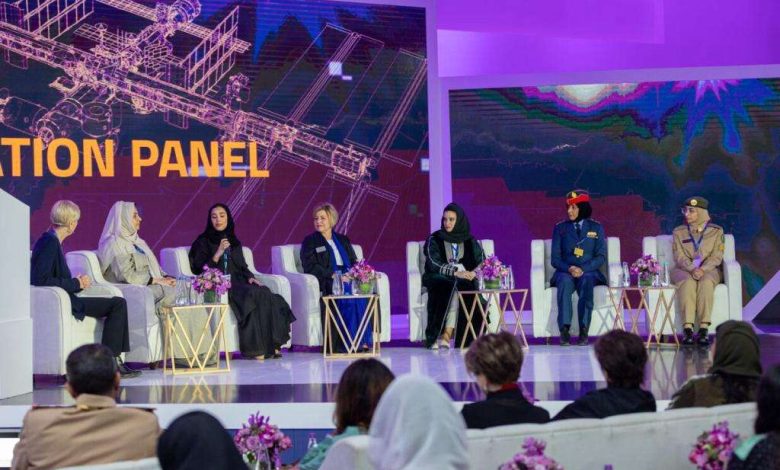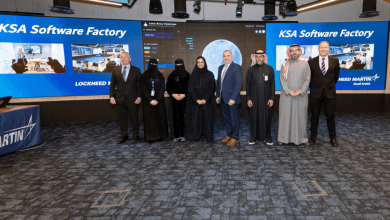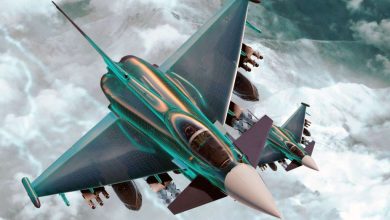
Empowering Voices: The Rising Influence of Arab Women in National Security
The involvement of women in the defense sector is evolving throughout the Middle East, particularly in Saudi Arabia, as successful initiatives, such as the World Defense Show’s International Women in Defense forum, have illustrated.
The defense industry continues to be predominantly male-driven worldwide. Reports from last year indicated that females constituted only 23-25% of the workforce at the leading five United States defense contractors.
Nevertheless, there is optimism for transformation. In terms of female chief executives, the aerospace and defense sector is outpacing other fields in terms of gender parity. According to Korn Ferry, women CEOs comprise 19% of the leadership in aerospace and defense, while it’s merely 5% across all other sectors. Major firms like Lockheed Martin, General Dynamics, Northrop Grumman, and Boeing’s defense, space, and security division—all among the top five largest United States aerospace and defense companies—are led by women.
While this disparity is also evident in the Middle East, a region traditionally more conservative regarding gender roles, there has been a remarkable rise in female engagement and contributions in recent years. Arab women are increasingly defying stereotypes by assuming positions once reserved for men in the defense arena, now serving as pilots, engineers, peacekeepers, and in special operations troops.
Significant milestones have recently occurred in the region: Jana Sader emerged as Lebanon’s first female fixed-wing pilot; Sabaa Thnaibat became the first woman to fly the F-16 solo in the Jordanian Air Force; Sheikha Aisha bint Rashid Al Khalifa achieved the title of Bahrain’s first female fighter pilot; Sara Sabry made history as the first Egyptian in space; and Saudi Arabia’s Rayannah Barnawi became the first Arab woman astronaut. These milestones highlight a growing readiness to challenge entrenched gender norms.
This breaking of boundaries and challenging of conventions is reflecting a transformation in dynamics and priorities throughout the Middle East, particularly noticeable in Saudi Arabia.
The significance of Saudi Vision 2030
The shift to integrate women into the Saudi military was initiated as part of the Kingdom’s Vision 2030, which aims to reform nearly every aspect of life and governance, including promoting women’s participation in the workforce. Expanding women’s roles within the military and integrating them into the Armed Forces are essential milestones toward achieving these objectives. In 2018, the Kingdom opened doors for women to apply for various non-military security positions. Saudi women have also been engaged in public security since 2019,
in the General Directorate of Prisons, Criminal Evidence and Customs, and the General Directorate of Narcotics.
The Saudi military chief of staff, Gen Fayyad Al Ruwaili, along with Director-General of the General Administration of Admission and Recruitment Maj Gen Imad Al Aidan, launched the inaugural military section for women in the Saudi Armed Forces in January 2021. This step permitted women to enlist as lance corporals, corporals, sergeants, and staff sergeants within the Royal Saudi Land Forces, Royal Saudi Air Defense, Royal Saudi Navy, Strategic Missile Forces, and Armed Forces Medical Services. Women can also climb the ranks to various officer positions and senior roles.
The establishment of the Armed Forces Women’s Cadre Training Centre in February 2022 and the graduation of hundreds of women from it marked another significant advancement in preparing women for military roles. The first female recruits graduated from the Armed Forces Women’s Cadre Training Centre in September of last year, marking the first instance in the Kingdom’s history where women embark on service in frontline capacities.
Ongoing Regional Progress
Additional initiatives promoting gender equity and diversity have been launched within defense institutions. Policies have been established to guarantee equal opportunities for men and women regarding recruitment, training, and career advancement. Arab nations have also been investing in mentorship and leadership development programs specifically designed for women in the defense sector, cultivating a supportive environment for their career advancement.
During the inaugural World Defense Show in 2022, the International Women in Defense Program held on March 8th, aligning with International Women’s Day, was a tremendous success. Led by HRH Ambassador Reema bint Bandar Al Saud, the event focused on the challenges and celebrated accomplishments within the industry through a series of expert panels and discussions. The program will return for WDS 2024 with an expanded format and an impressive lineup of influential industry leaders, with Ambassador Reema once again at the forefront.
Ambassador Reema stated: “This is a time to honor the contributions and achievements of women globally from our past and present. Women have been serving, fighting, and contributing to the security and prosperity of their nations for over a century.
“International Women in Defense is a worldwide initiative, fostering resilience in an ever-evolving landscape and assisting us in navigating the challenges we encounter within the sector, sharing personal narratives and celebrating the contributions of women who continue to serve their country. At this event, we unite to support national, regional, and global efforts to accelerate women’s involvement in the defense sector on a worldwide level, forging alliances and sharing best practices crucial to maintaining momentum for change,” she added.
These recognitions of the progress in the role of women in defense significantly contribute to altering global perceptions regarding the abilities and contributions of women in traditionally male-dominated sectors. In Saudi Arabia, it reflects a broader societal shift in attitudes toward gender roles, showcasing a commitment to inclusivity, diversity, and the acknowledgment of the substantial contributions women can make in defense and security. The advancements made in the Middle East further enhance the global narrative of women increasingly taking on vital roles in defense and security.










